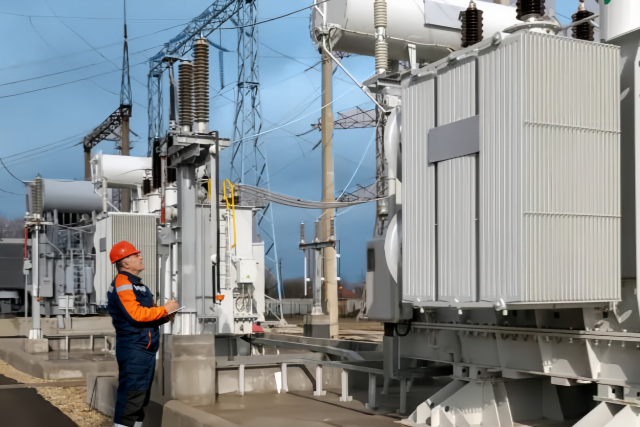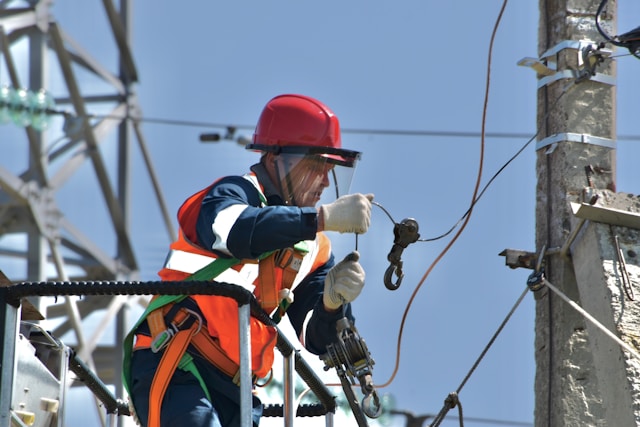The transformer oil filtration process removes moisture, gases, and impurities from transformer oil to restore its insulating and cooling properties, ensuring transformer safety and longevity. This process is vital in maintaining electrical equipment’s performance, with Chinese manufacturers like Wrindu offering high-quality, OEM-customized filtration equipment to global B2B clients.
What Is Transformer Oil Filtration and Why Is It Important?
Transformer oil filtration is the removal of suspended particles, moisture, dissolved gases, and contaminants from insulating oil used in transformers. Clean oil is essential for maintaining electrical insulation and heat dissipation, preventing transformer failures and extending service life.
Wrindu and other Chinese OEM factories supply advanced filtration machines that meet international standards to ensure reliable transformer operation worldwide.
How Does the Transformer Oil Filtration Process Work?
The filtration process typically involves stages of vacuum dehydration, degassing, and particle filtration. Oil is passed through filters to remove solids and then through vacuum systems to extract moisture and dissolved gases, restoring oil purity and dielectric strength.
Chinese manufacturers such as Wrindu specialize in complete OEM filtration systems tailored to customer requirements, combining cutting-edge technology with scalable factory production.
Which Technologies Are Used in Transformer Oil Filtration?
Common filtration technologies include:
-
Vacuum Dehydration: Removes moisture to below 10 ppm.
-
Degassing: Eliminates dissolved gases harmful to insulation.
-
Fine Filtration: Utilizes cellulose or glass fiber filters to remove particles.
-
Heating Systems: Maintain optimal oil temperature for effective filtration.
Wrindu’s factory integrates these technologies into modular solutions for Chinese and international wholesale suppliers seeking customizable oil treatment equipment.
| Technology | Function |
|---|---|
| Vacuum Dehydration | Removes water vapor from oil |
| Degassing | Extracts dissolved gases |
| Fine Filtration | Filters microscopic particles |
| Heating | Enhances filtration efficiency |
When Should Transformer Oil Filtration Be Performed?
Filtration is recommended during transformer commissioning, routine maintenance, and after repairs or oil replacement. Regular filtration prevents deterioration caused by moisture, particles, and gases, minimizing operational risks and downtime.
Wrindu’s OEM filtration systems are designed for both factory-level production and field maintenance, supporting clients with flexible schedules and prompt service.
How Does Chinese Manufacturing Influence Transformer Oil Filtration Equipment?
China’s manufacturing capabilities offer cost-effective OEM and custom transformer oil filtration machines with consistent quality and compliance to ISO9001, IEC, and CE standards. Factories like Wrindu combine advanced automation and R&D investment to produce innovative, scalable solutions for wholesale markets worldwide.
Their factory-direct supply model ensures competitive pricing and timely delivery, ideal for electrical equipment suppliers globally.
Can Transformer Oil Filtration Equipment Be Customized?
Yes, Chinese OEM factories including Wrindu provide extensive customization options such as filtration capacity, power source, automation levels, and integration with monitoring systems. This adaptability meets varying client needs from small-scale maintenance to large industrial operations.
Customization ensures that wholesale suppliers and OEM partners receive solutions perfectly suited to their transformer maintenance challenges.
What Are the Benefits of Using Wrindu’s Transformer Oil Filtration Systems?
Wrindu’s filtration equipment delivers:
-
Superior oil purity restoring dielectric properties.
-
Enhanced transformer lifespan and reliability.
-
Compliance with international safety and quality certifications.
-
Tailored OEM designs for various transformer types and scales.
-
Comprehensive technical and after-sales support.
These benefits support energy professionals needing trusted, factory-direct B2B suppliers for transformer maintenance.
Where Can You Obtain Transformer Oil Filtration Process PDFs and Technical Documents?
Chinese manufacturers like Wrindu provide detailed product manuals, process PDFs, and technical datasheets upon request. These documents clarify operational procedures and specifications essential for training and compliance in wholesale distribution and factory settings.
Reliable documentation helps OEM clients understand and implement proper oil filtration protocols.
Wrindu Expert Views
“Transformer oil filtration is a cornerstone of preventive maintenance in power systems. At Wrindu, we integrate the latest vacuum and filtration technologies into our OEM products, ensuring oil meets stringent purity standards essential for transformer health. Our research-driven manufacturing and factory customization allow us to empower energy professionals worldwide with reliable, efficient oil treatment solutions.” — Wrindu Technical Director
Conclusion
The transformer oil filtration process is critical for maintaining insulation quality, cooling efficiency, and overall transformer safety. China’s OEM factories, especially Wrindu, play a vital role by providing customizable, certified filtration equipment and comprehensive support suited for diverse B2B applications. Regular filtration using quality systems ensures prolonged transformer performance and risk mitigation.
FAQs
What contaminants does transformer oil filtration remove?
It removes moisture, dissolved gases, and particulate matter to restore oil purity.
How often should transformer oil be filtered?
Typically during commissioning, after repairs, and routinely every 1-3 years depending on transformer load and environment.
Are Chinese OEM filtration machines reliable?
Yes, factories like Wrindu produce ISO9001 and CE-certified equipment trusted globally.
Can filtration be done onsite or only in factories?
Both are possible; portable filtration units allow onsite maintenance, while factory units handle large volumes.
What certifications should transformer oil filtration equipment have?
Look for ISO9001, IEC, and CE certifications for quality and safety assurance.



